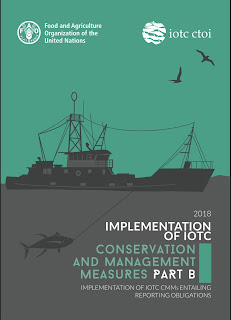The "Missing Report" on Building Resilience at the Community Level on Healthcare in Somalia!
"The Missing Report"
This is what the minister of Health and Human Services of the FGS meant to say, however, I could not get the report to him in a timely matter! My apologies! So, this is my humble attempt to reproduce the missing report at his desk. Take it with a grain of salt.FGS's Commitment
The Somali government is focused on building resilience at the community level on health care. This includes improving access to quality health care services, strengthening community health systems, and promoting healthy lifestyles. This is a long-term goal that will require the cooperation of all stakeholders, including the government, the private sector, and civil society.
The government is working, along with its international partners, to improve access to quality health care services by building new hospitals and clinics, training more health workers, and providing financial assistance to people who cannot afford to pay for health care. The government is also working to strengthen community health systems by providing training and support to community health workers, and by developing community-based health insurance schemes.
Focus Areas
The government's efforts to build resilience at the community level on health care are making a positive impact. These include:
- Increased access to health care services: When communities are resilient, they are better able to cope with shocks and stresses, such as natural disasters, economic crises, and conflict. This can lead to increased access to health care services, as communities are better able to withstand the impact of these events.
- Improved health outcomes: When resilient communities are able to cope with shocks and stresses, in return it can have a positive impact on health outcomes. For example, resilient communities may be better able to prevent the spread of diseases, or to provide care to those who are injured or sick. Promoting the use of evidence-based practices also delivers a better quality health care system.
- Increased economic productivity: Resilient communities are better able to withstand shocks and stresses, which can lead to increased economic productivity. For example, resilient communities may be better able to continue to produce food or to provide services, even in the face of a crisis.
- Reduced poverty and inequality: Resilient communities are better able to withstand shocks and stresses, which can lead to reduced poverty and inequality. For example, resilient communities may be better able to provide support to those who are most vulnerable, or to ensure that everyone has access to basic necessities.
- Increasing access to basic health services: Including maternal and child health care, immunizations, and treatment of common diseases. Focusing on preventive care also eliminates the need for care at later period which frees valuable time, skills and cost.
- Strengthening the capacity of local health care providers: Including training them on how to provide quality care and how to manage chronic diseases. Increasing the availability of qualified health care workers can reduce redundancy and streamlines the health care system.
- Promoting healthy lifestyles: Such as eating a balanced diet and exercising regularly is low cost preventive strategy for a health care cost effectiveness strategy at the community level. Improving nutrition education and programs at schools and community centers help procure a healthy lifestyle.
- Reducing the impact of climate change on health: Such as by providing early warning systems and training communities on how to cope with extreme weather events. Expanding access to clean water and sanitation.
- Introducing and passing healthcare related laws: Strengthening the regulatory framework for health care.
Despite all the challenges the country is facing now, the government is committed to building resilience at the community level because it is not a matter of choice but rather a necessity. Ultimately, this is essential to improving the lives of all Somalis. With measures in place, the number of maternal deaths has decreased significantly in recent years, and the number of children immunized against preventable diseases has increased. These improvements in the healthcare sector are a testament to the government's commitment to building resilience at the community level.











Comments
Post a Comment